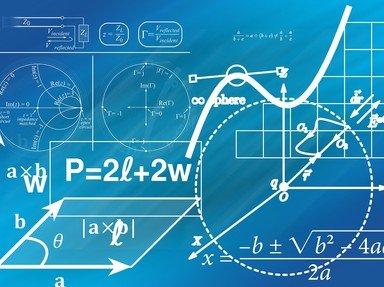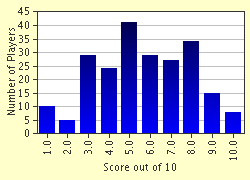Quiz Answer Key and Fun Facts
1. How can one tell if an integer is divisible by 6?
2. Which of the following is a rule for divisibility by 4?
3. 999999 is evenly divisible by 7.
4. Which of the following integers is evenly divisible by 11?
5. Do you know these ultra-superstitious people? I knew someone who refused to have anything to do with the number 13, or any of its multiples. He once rejected 3 phone numbers offered by his cellphone operator on this very ground. Which number was he willing to accept eventually?
6. Fill in the blank digit in order for the resultant number to be divisible by 45: 5_1_5_1_5 (the same number goes in all the blanks.)
7. Which of the following statements about the integer 9699690 is correct?
8. How many of the first 1000 prime integers have divisibility rules?
9. Let's move on from the specific decimal realm to generic bases. For this question, our base is B.
Complete the following rule: "If the sum of digits of an integer is divisible by ___ then the integer is divisible by ___."
10. If k is a prime factor of the base B, then a number is divisible by k^n if and only if the last n digits of the number are divisible by k^n.
Source: Author
gentlegiant17
This quiz was reviewed by FunTrivia editor
crisw before going online.
Any errors found in FunTrivia content are routinely corrected through our feedback system.

